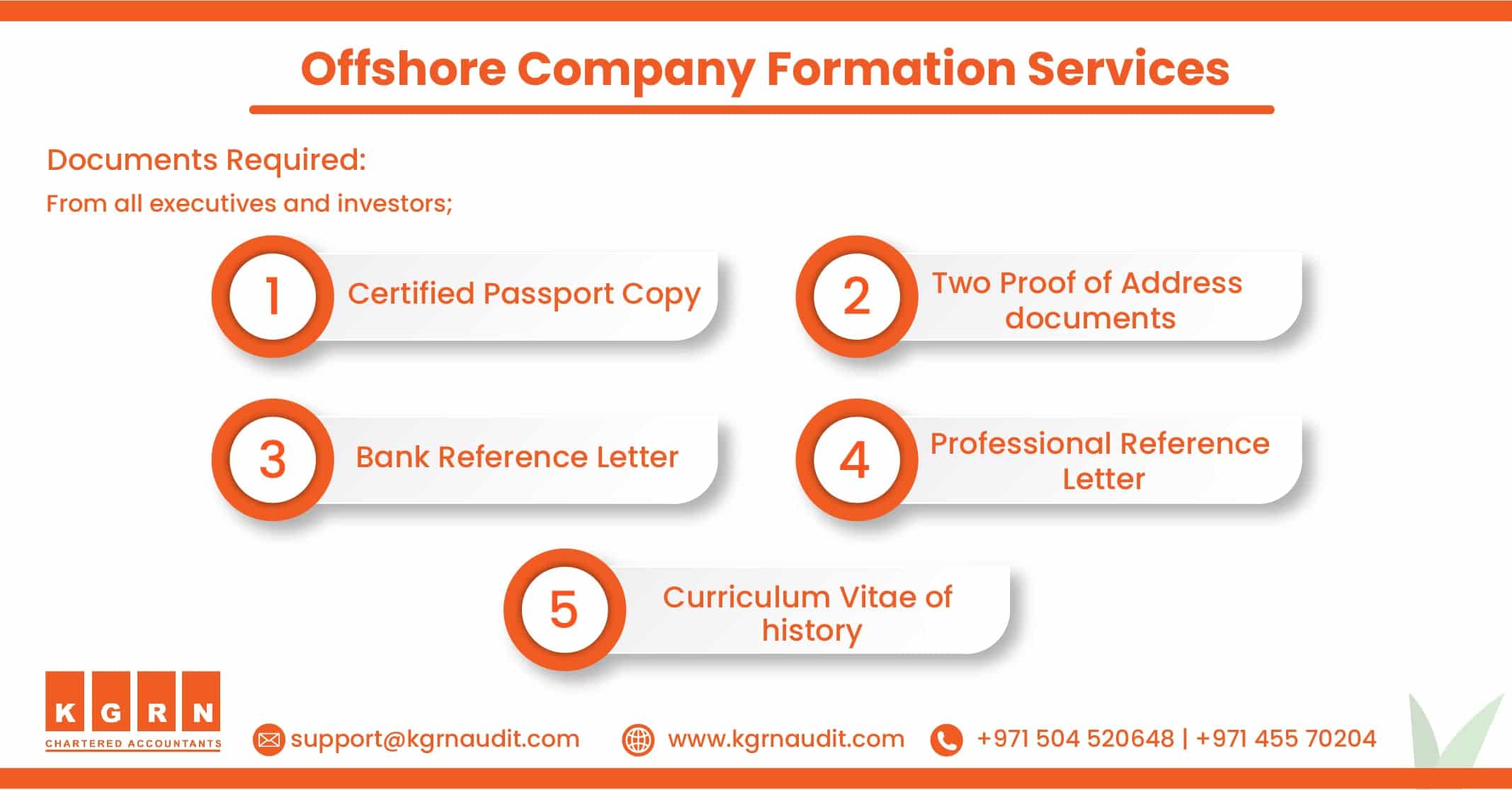Discovering the Process and Advantages of Offshore Company Formation for Businesses
Offshore Company Formation offers a critical possibility for companies seeking to increase their reach and enhance monetary performance. By developing entities in desirable jurisdictions, firms can utilize advantages such as decreased tax obligations and raised privacy. However, the procedure entails navigating complicated lawful structures and conformity requirements. Understanding these details is vital for success. What are the details advantages that various territories offer, and how can companies successfully handle their offshore procedures?
Recognizing Offshore Company Formation
What elements add to the appeal of offshore Company Formation? The wish for local business owner to capitalize on global market chances plays a substantial role. By developing an overseas entity, entrepreneurs can access diverse markets, enabling growth past residential borders. Furthermore, certain jurisdictions provide beneficial regulatory atmospheres and simplified administrative procedures, making it easier for business to operate efficiently.Another adding variable is the potential for boosted personal privacy and privacy. Numerous overseas territories give rigorous regulations protecting the identities of supervisors and investors, attracting those that prioritize discernment. The adaptability in corporate structures is eye-catching, as it makes it possible for businesses to tailor their operations to particular needs.Finally, the attraction of lower operational expenses, including tax benefits and decreased compliance burdens, makes overseas Company Formation an appealing approach for several looking for to maximize their service operations in an affordable landscape.
Secret Benefits of Establishing an Offshore Entity
Developing an offshore entity provides considerable benefits for businesses, specifically in tax optimization and privacy security. By purposefully placing a firm in a positive jurisdiction, companies can reduce their general tax obligation obligations while keeping confidentiality regarding their economic tasks. These benefits make offshore Company Formation an attractive alternative for several business owners seeking to boost their operational effectiveness.
Tax Obligation Optimization Methods
While many organizations look for to optimize their profitability, leveraging offshore Company Formation can be a critical approach to tax optimization. Establishing an offshore entity enables firms to capitalize on favorable tax regimes that many jurisdictions provide, such as low or zero company tax obligation rates. This can result in considerable financial savings, specifically for services participated in international trade or on-line solutions. Furthermore, overseas business can assist in the deferment of tax obligations on revenues until they are repatriated, further improving capital. By tactically alloting sources and structuring procedures via overseas entities, businesses can efficiently reduce their general tax obligation responsibilities. Ultimately, these techniques add to enhanced financial efficiency and greater competitive benefit in the global market.
Improved Privacy Protection
Exactly how can companies guard their sensitive details in a significantly transparent globe? Developing an offshore entity provides a sensible option for boosting privacy security. Offshore jurisdictions frequently use strict discretion legislations that protect corporate information from public examination. This degree of privacy is particularly attractive for business worried regarding copyright, financial data, and operational methods coming to be openly obtainable. In addition, offshore structures can reduce the risk of identification theft and company espionage, as individual and company information may stay concealed. By leveraging these privacy advantages, services can operate with higher satisfaction, ensuring that their proprietary details is protected. Inevitably, boosted privacy security adds not only to functional safety but additionally to fostering an one-upmanship in the marketplace.

Selecting the Right Offshore Territory
Choosing the proper offshore jurisdiction is essential for businesses looking for to optimize their financial and functional approaches. Various aspects have to be considered, consisting of tax obligation policies, lawful structures, and political security. Popular territories such as the British Virgin Islands, Cayman Islands, and Panama offer positive tax obligation regimens and confidentiality, making them attractive options.Additionally, businesses need to examine the convenience of conformity, availability to financial services, and the online reputation of the jurisdiction in global markets. Understanding regional legislations and laws is vital, as they can substantially affect organization procedures and the degree of protection afforded to assets.Furthermore, the availability of proficient experts and provider can improve the efficiency of offshore operations. Ultimately, careful research and consideration of these aspects will lead businesses to the jurisdiction that ideal straightens with their objectives and long-lasting vision, making sure a tactical advantage in the affordable international landscape.
Actions to Establish Up an Offshore Company
Setting up an offshore Company entails numerous important steps that can considerably affect its success. First, one have to choose the territory wisely to line up with business objectives and legal demands. Following this, preparing the essential documentation and opening a financial institution account are essential actions to ensure smooth procedures
Pick Jurisdiction Carefully

Prepare Necessary Documentation
After recognizing an ideal jurisdiction, the next action in establishing an overseas Company involves preparing the needed paperwork. This procedure usually needs a number of vital papers, including the Company's memorandum and articles of organization, which outline the Company's function and inner policies. In addition, proof of identity and address for all investors and supervisors should be gathered, usually requiring notarized duplicates of passports and energy costs - offshore company formation. Some territories might also call for a service plan or a summary of intended tasks. It's vital for local business owner to assure that all documentation follows regional laws, as inaccurate or insufficient submissions can cause hold-ups or beings rejected in the application procedure. Appropriate organization of these files facilitates a smoother arrangement experience
Open Savings Account
Opening a checking account is an essential action in the overseas Company Formation procedure. This account acts as the monetary center for business, enabling for purchases, financial investments, and functional expenditures to be taken care of efficiently. To open an offshore checking account, one need to typically offer recognition papers, evidence of address, and the Company's enrollment information. Lots of financial institutions need a minimum deposit and might carry out due diligence to guarantee compliance with international laws. Selecting a financial institution that specializes in overseas solutions can enhance the procedure, using customized services to satisfy organization demands. Furthermore, comprehending the bank's cost framework and services is essential for maximizing economic administration in an overseas context.
Governing and legal Considerations
While the allure of overseas Company Formation frequently comes from possible tax obligation benefits and asset protection, it is important for entrepreneur to navigate the facility landscape of regulative and legal factors to consider. Various jurisdictions enforce varying regulations relating to Company reporting, compliance, and enrollment. Understanding local legislations is essential to assure adherence and avoid potential penalties.Furthermore, worldwide regulations, such as anti-money laundering (AML) and recognize your consumer (KYC) requirements, might apply depending on the nature of the service activities. Failure to adhere to these guidelines can lead to lawful issues and reputational damage.Additionally, tax obligation treaties between countries might affect the tax obligation obligations of overseas entities, making it vital for company owner to get in touch with economic and legal specialists. Overall, an extensive understanding of these legal frameworks is imperative for companies looking for to establish an effective overseas presence while decreasing risks.
Methods for Reliable Offshore Monitoring
Steering the intricacies of offshore Company Formation needs not just an understanding of regulatory and legal frameworks however likewise reliable monitoring techniques to ensure lasting success. Key strategies include establishing durable interaction networks among stakeholders, making certain transparency in operations, and executing strong internal controls to mitigate dangers. Routinely evaluating performance metrics helps identify areas for improvement and cultivates accountability.Additionally, leveraging technology can streamline procedures, improve data protection, and make it possible for real-time decision-making. Growing a experienced and culturally conscious monitoring team is crucial, as they can navigate the subtleties of operating throughout different jurisdictions. Creating tactical collaborations with regional experts can supply indispensable insights right into market characteristics and regulative adjustments. Ultimately, establishing a clear vision and mission for the overseas entity can influence and align initiatives commitment amongst employee, ultimately driving continual growth and success in the competitive worldwide landscape.
Common Misconceptions Concerning Offshore Business
What gas the false impressions surrounding overseas companies? A combination of media representation, lack of understanding, and historic associations with tax obligation evasion contributes greatly. Lots of perceive overseas business solely as automobiles for immoral activities, forgeting their legitimate usages, such as possession protection and worldwide market accessibility. Another common myth is that just wealthy individuals can take advantage of overseas formations. In truth, little and medium-sized business also take advantage of these structures for different advantages, including decreased functional costs and improved personal privacy. In addition, some believe that all overseas jurisdictions are tax havens, disregarding the variety of laws and compliance demands throughout different areas. Misconceptions regarding the intricacy of managing overseas entities better bolster these misconceptions. By addressing these mistaken beliefs, organizations can better appreciate the genuine opportunities that offshore Company Formation offers, allowing them to make educated decisions for growth and expansion.
Regularly Asked Questions
Can Individuals Form Offshore Companies Without Company Experience?
Individuals can without a doubt develop overseas business without prior business experience. offshore company formation. Several territories supply obtainable resources and support services, making check here it possible for novices to browse the procedure, comprehend guidelines, and manage their brand-new ventures properly
What Is the Minimum Investment Required for Offshore Company Arrangement?
The minimal investment needed for overseas Company configuration varies significantly by territory, commonly varying from a few hundred to several thousand bucks. Aspects influencing prices include enrollment charges, lawful services, and necessary compliance commitments.
Are Offshore Business Subject to International Tax Obligations?
Offshore companies might not be subject to global taxes, relying on jurisdiction and specific tax legislations. Nonetheless, they should conform with neighborhood policies and might encounter taxation in their nation of enrollment or procedure.
Can Offshore Companies Open Financial Institution Accounts Conveniently?
Offshore companies typically locate it relatively simple to open bank accounts, supplied they fulfill specific documentation and compliance demands. Variables like jurisdiction, bank policies, and the Company's service task significantly influence the simplicity of this procedure.
How Long Does It Take to Register an Offshore Company?
The duration for registering an overseas Company generally differs by jurisdiction, ranging from a few days to a number of weeks. Aspects affecting the timeline include documents needs, governing authorizations, and the performance of regional authorities. Offshore Company Formation presents a tactical possibility for services looking for to increase their reach and optimize financial performance. While many companies seek to maximize their earnings, leveraging overseas Company Formation can be a critical strategy to tax obligation optimization. Establishing an offshore entity permits firms to take benefit of positive tax regimes that several territories supply, such as low or absolutely no business tax obligation rates. While the allure of overseas Company Formation usually stems from prospective tax advantages and asset defense, it is critical for organization proprietors to navigate the facility landscape of regulative and lawful considerations. People can undoubtedly create offshore business without prior company experience.